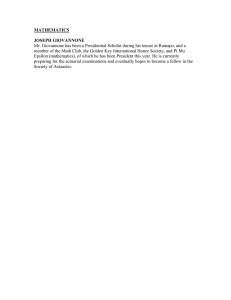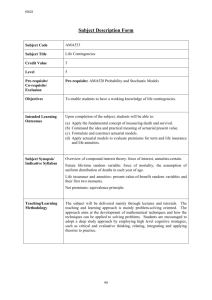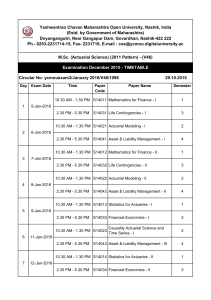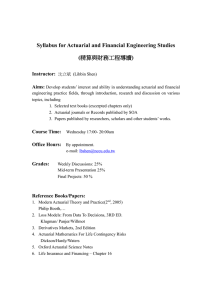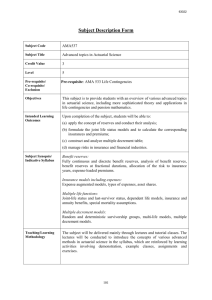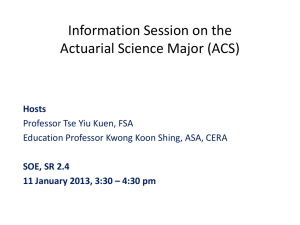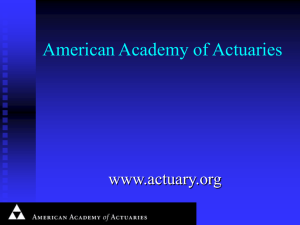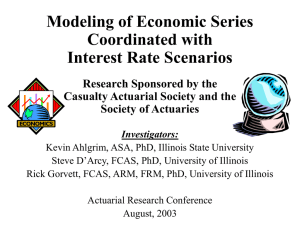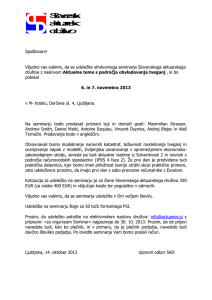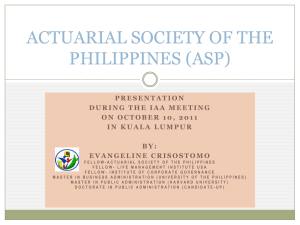A quick guide to Actuarial Science at Wake Forest
advertisement
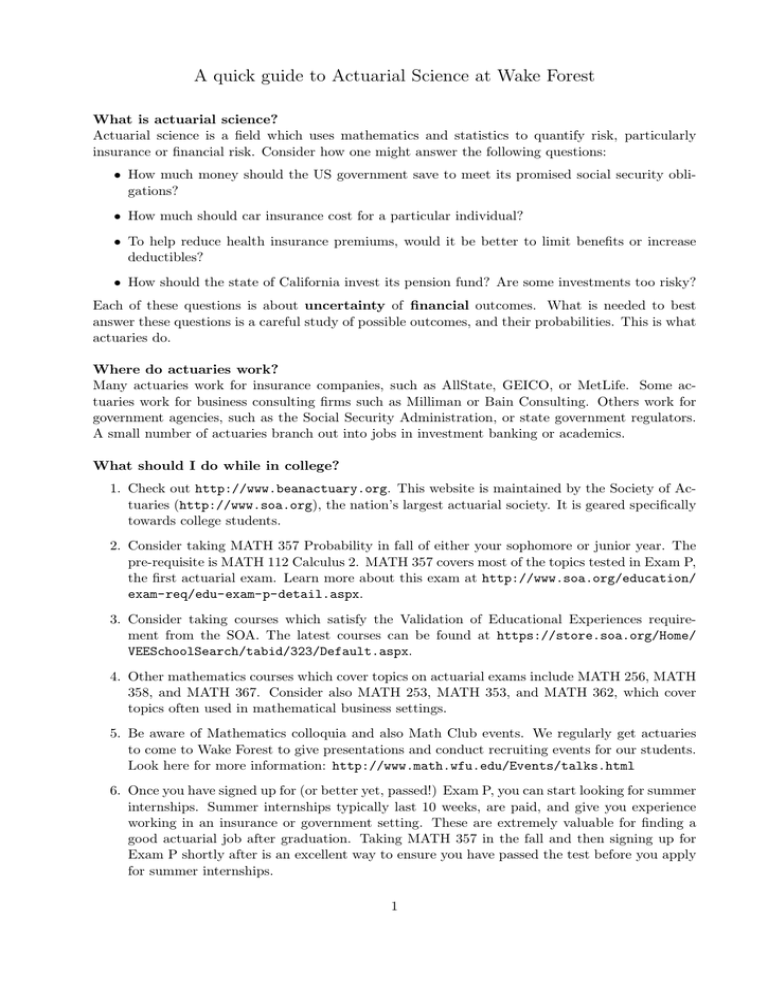
A quick guide to Actuarial Science at Wake Forest What is actuarial science? Actuarial science is a field which uses mathematics and statistics to quantify risk, particularly insurance or financial risk. Consider how one might answer the following questions: • How much money should the US government save to meet its promised social security obligations? • How much should car insurance cost for a particular individual? • To help reduce health insurance premiums, would it be better to limit benefits or increase deductibles? • How should the state of California invest its pension fund? Are some investments too risky? Each of these questions is about uncertainty of financial outcomes. What is needed to best answer these questions is a careful study of possible outcomes, and their probabilities. This is what actuaries do. Where do actuaries work? Many actuaries work for insurance companies, such as AllState, GEICO, or MetLife. Some actuaries work for business consulting firms such as Milliman or Bain Consulting. Others work for government agencies, such as the Social Security Administration, or state government regulators. A small number of actuaries branch out into jobs in investment banking or academics. What should I do while in college? 1. Check out http://www.beanactuary.org. This website is maintained by the Society of Actuaries (http://www.soa.org), the nation’s largest actuarial society. It is geared specifically towards college students. 2. Consider taking MATH 357 Probability in fall of either your sophomore or junior year. The pre-requisite is MATH 112 Calculus 2. MATH 357 covers most of the topics tested in Exam P, the first actuarial exam. Learn more about this exam at http://www.soa.org/education/ exam-req/edu-exam-p-detail.aspx. 3. Consider taking courses which satisfy the Validation of Educational Experiences requirement from the SOA. The latest courses can be found at https://store.soa.org/Home/ VEESchoolSearch/tabid/323/Default.aspx. 4. Other mathematics courses which cover topics on actuarial exams include MATH 256, MATH 358, and MATH 367. Consider also MATH 253, MATH 353, and MATH 362, which cover topics often used in mathematical business settings. 5. Be aware of Mathematics colloquia and also Math Club events. We regularly get actuaries to come to Wake Forest to give presentations and conduct recruiting events for our students. Look here for more information: http://www.math.wfu.edu/Events/talks.html 6. Once you have signed up for (or better yet, passed!) Exam P, you can start looking for summer internships. Summer internships typically last 10 weeks, are paid, and give you experience working in an insurance or government setting. These are extremely valuable for finding a good actuarial job after graduation. Taking MATH 357 in the fall and then signing up for Exam P shortly after is an excellent way to ensure you have passed the test before you apply for summer internships. 1 7. Consider studying for the second exam, Exam FM, on your own. Our department may be able to assist you with obtaining study materials or linking you up with other students interested in studying for this exam. 8. Don’t forget to consider valuable liberal arts courses on campus! Courses which emphasize writing, speaking, or leadership all help you to gain the necessary skills to be a leader in your company. For more information, contact Dr. Rob Erhardt (a former actuary) at erhardrj@wfu.edu. 2
